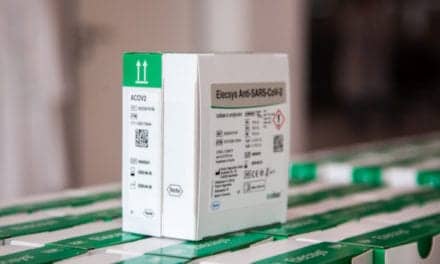With seed funding of $11 million, epigenetics company Base Genomics, Oxford, UK, has launched with a team of leading scientists and clinicians to develop its TET-assisted pyridine borane sequencing (TAPS) technology for the detection of DNA methylation. The initial goal is to develop a blood test for early-stage cancer and minimal residual disease.
DNA methylation is an epigenetic mechanism involved in gene regulation and has been shown to be one of the most promising biomarkers for detecting cancer through liquid biopsy. However, the existing industry standard for mapping DNA methylation degrades DNA and reduces sequence complexity, limiting scientific discovery and clinical sensitivity. TAPS overcomes these issues and generates significantly more information from a given sample, creating new opportunities in research and the clinic.
“In order to realize the potential of liquid biopsies for clinically meaningful diagnosis and monitoring, sensitive detection and precise quantification of circulating tumor DNA is paramount,” says Anna Schuh, MD, PhD, chief medical officer at Base Genomics. “Current approaches are not fit for purpose to achieve this, but Base Genomics has developed a game-changing technology that has the potential to make the sensitivity of liquid biopsies a problem of the past.”
First developed at the Ludwig Institute for Cancer Research at the University of Oxford, TAPS is a novel chemical reaction that converts methylated cytosine to thymine under mild conditions. Unlike the industry standard technology, bisulfite sequencing, TAPS does not degrade DNA, meaning that significantly more DNA is available for sequencing. TAPS also better retains sequence complexity, cutting sequencing costs in half and enabling simultaneous epigenetic and genetic analysis.
“Genomic technologies with the power, simplicity, and broad applicability of TAPS come along very infrequently,” says Vincent Smith, PhD, chief technology officer at Base Genomics. “It has the potential to have an impact on epigenetics similar to that which Illumina’s sequencing-by-synthesis chemistry had on next-generation sequencing.”
“The ability to sequence a large amount of high-quality epigenetic information from a simple blood test could unlock a new era of preventative medicine,” says Base Genomics founder and chief executive officer Oliver Waterhouse. “In the future, individuals will not just be sequenced once to determine their largely static genetic code but repeatedly over time to track dynamic epigenetic changes caused by age, lifestyle, and disease.”
For more information, visit Base Genomics.




